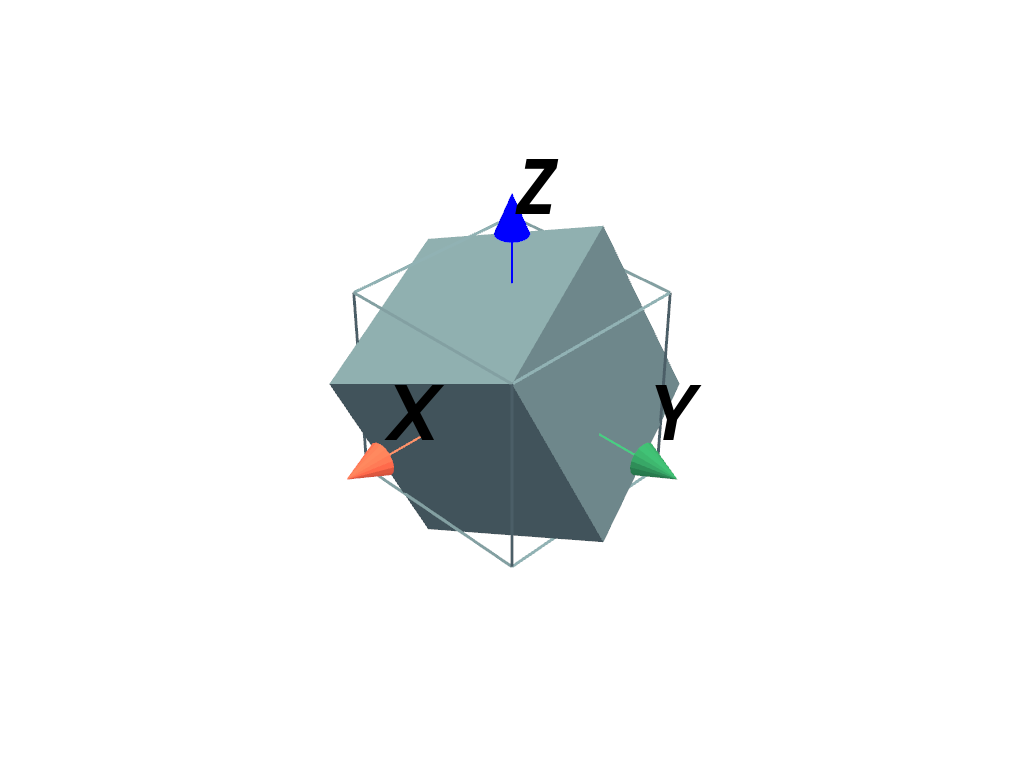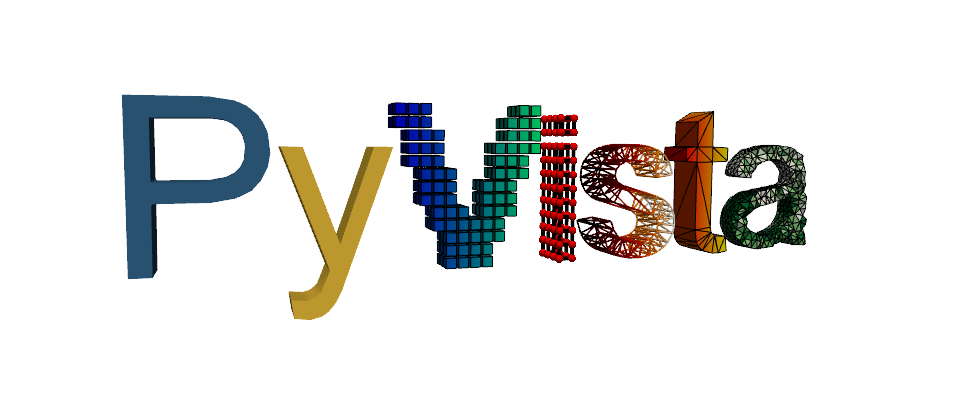pyvista.DataSet.rotate_vector#
- DataSet.rotate_vector(
- vector: VectorLike[float],
- angle: float,
- point: VectorLike[float] | None = None,
- transform_all_input_vectors: bool = False,
- inplace: bool = False,
Rotate mesh about a vector.
Note
See also the notes at
transform()which is used by this filter under the hood.- Parameters:
- vector
Vector Vector to rotate about.
- angle
float Angle to rotate.
- point
VectorLike[float],optional Point to rotate about. Defaults to origin.
- transform_all_input_vectorsbool, default:
False When
True, all input vectors are transformed. Otherwise, only the points, normals and active vectors are transformed.- inplacebool, default:
False Updates mesh in-place.
- vector
- Returns:
pyvista.DataSetRotated dataset.
See also
pyvista.Transform.rotate_vectorConcatenate a rotation about a vector with a transformation.
Examples
Rotate a mesh 30 degrees about the
(1, 1, 1)axis.>>> import pyvista as pv >>> mesh = pv.Cube() >>> rot = mesh.rotate_vector((1, 1, 1), 30, inplace=False)
Plot the rotated mesh.
>>> pl = pv.Plotter() >>> _ = pl.add_mesh(rot) >>> _ = pl.add_mesh(mesh, style='wireframe', line_width=3) >>> _ = pl.add_axes_at_origin() >>> pl.show()

